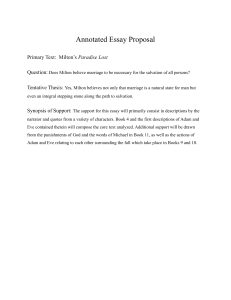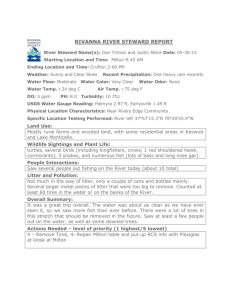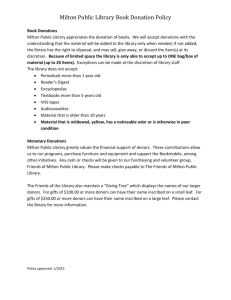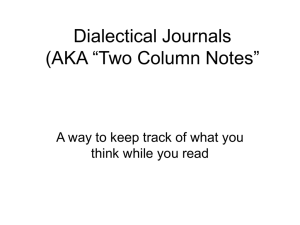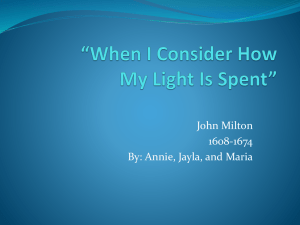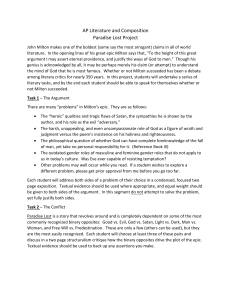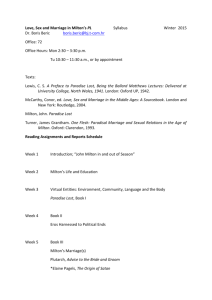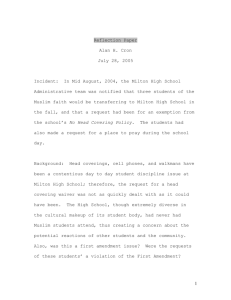Milton essay questions
advertisement
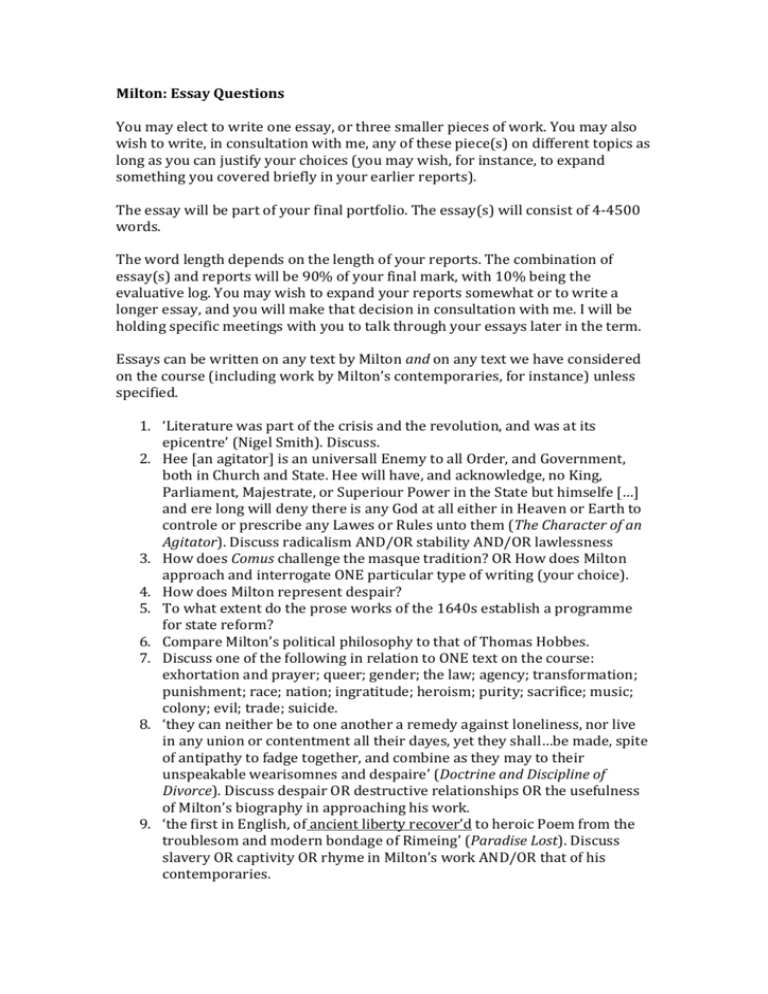
Milton: Essay Questions You may elect to write one essay, or three smaller pieces of work. You may also wish to write, in consultation with me, any of these piece(s) on different topics as long as you can justify your choices (you may wish, for instance, to expand something you covered briefly in your earlier reports). The essay will be part of your final portfolio. The essay(s) will consist of 4-4500 words. The word length depends on the length of your reports. The combination of essay(s) and reports will be 90% of your final mark, with 10% being the evaluative log. You may wish to expand your reports somewhat or to write a longer essay, and you will make that decision in consultation with me. I will be holding specific meetings with you to talk through your essays later in the term. Essays can be written on any text by Milton and on any text we have considered on the course (including work by Milton’s contemporaries, for instance) unless specified. 1. ‘Literature was part of the crisis and the revolution, and was at its epicentre’ (Nigel Smith). Discuss. 2. Hee [an agitator] is an universall Enemy to all Order, and Government, both in Church and State. Hee will have, and acknowledge, no King, Parliament, Majestrate, or Superiour Power in the State but himselfe […] and ere long will deny there is any God at all either in Heaven or Earth to controle or prescribe any Lawes or Rules unto them (The Character of an Agitator). Discuss radicalism AND/OR stability AND/OR lawlessness 3. How does Comus challenge the masque tradition? OR How does Milton approach and interrogate ONE particular type of writing (your choice). 4. How does Milton represent despair? 5. To what extent do the prose works of the 1640s establish a programme for state reform? 6. Compare Milton’s political philosophy to that of Thomas Hobbes. 7. Discuss one of the following in relation to ONE text on the course: exhortation and prayer; queer; gender; the law; agency; transformation; punishment; race; nation; ingratitude; heroism; purity; sacrifice; music; colony; evil; trade; suicide. 8. ‘they can neither be to one another a remedy against loneliness, nor live in any union or contentment all their dayes, yet they shall…be made, spite of antipathy to fadge together, and combine as they may to their unspeakable wearisomnes and despaire’ (Doctrine and Discipline of Divorce). Discuss despair OR destructive relationships OR the usefulness of Milton’s biography in approaching his work. 9. ‘the first in English, of ancient liberty recover’d to heroic Poem from the troublesom and modern bondage of Rimeing’ (Paradise Lost). Discuss slavery OR captivity OR rhyme in Milton’s work AND/OR that of his contemporaries. 10. Discuss one of the prose works in relation to one of the following ideas: domesticity; self-government; marriage; agency. 11. ‘the Royal Actor born / The Tragick Scaffold might adorn’ (Marvell). Discuss the relationship between performance and selfhood in Milton’s writing. 12. ‘Fool do not boast, Thou canst not touch the freedom of my minde’ (Comus) Discuss interiority OR freedom OR boasting. 13. How do Royalist poets represent one of the following in their work: chaos; pastoral; popular culture; stability; women; drink. 14. ‘This is true Liberty when free born men Having to advise the public may speak free, Which he who can, and will, deserv's high praise, Who neither can nor will, may hold his peace What can be juster in a State then this?’ (Euripides, epigraph to Areopagitica) Discuss liberty OR praise OR justice.
